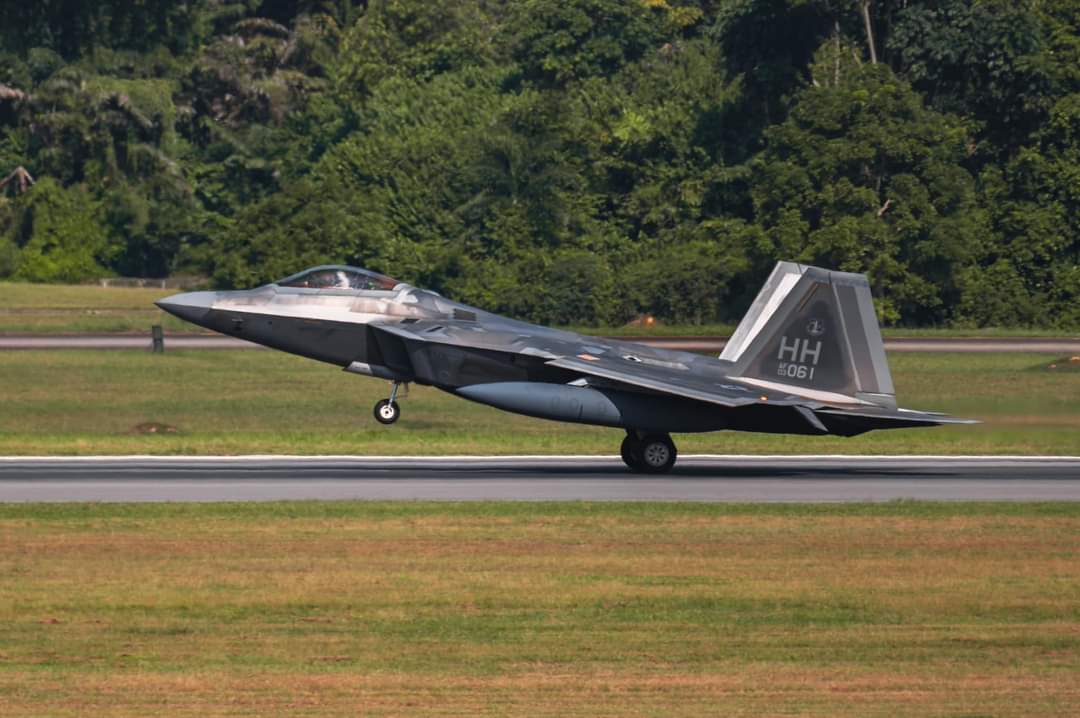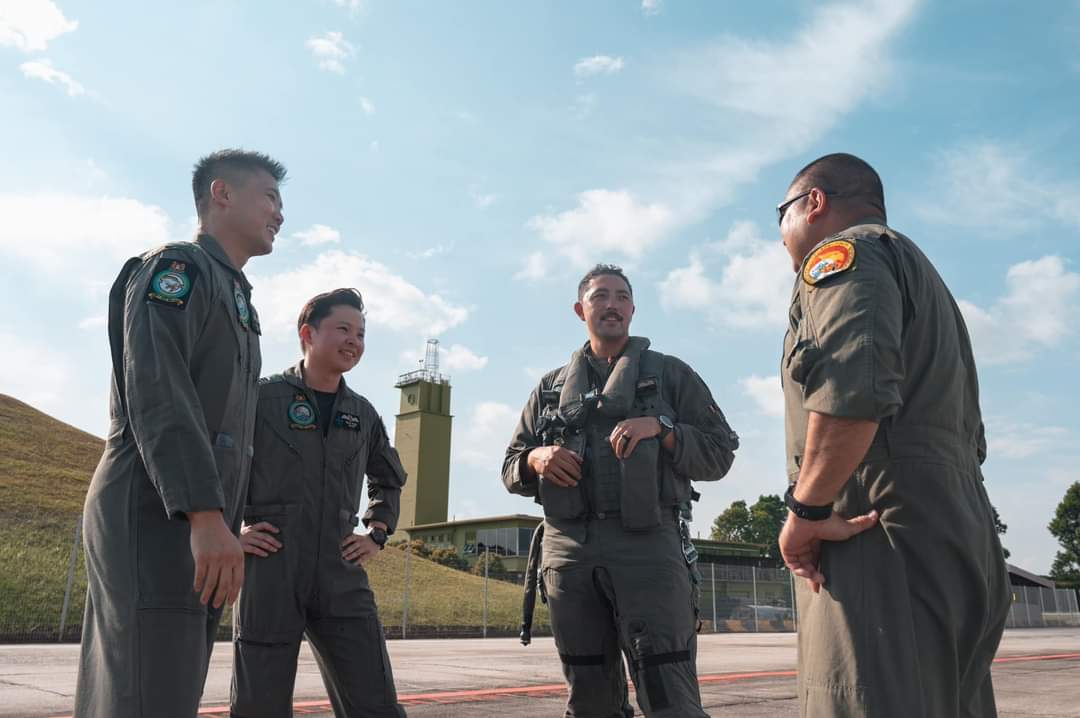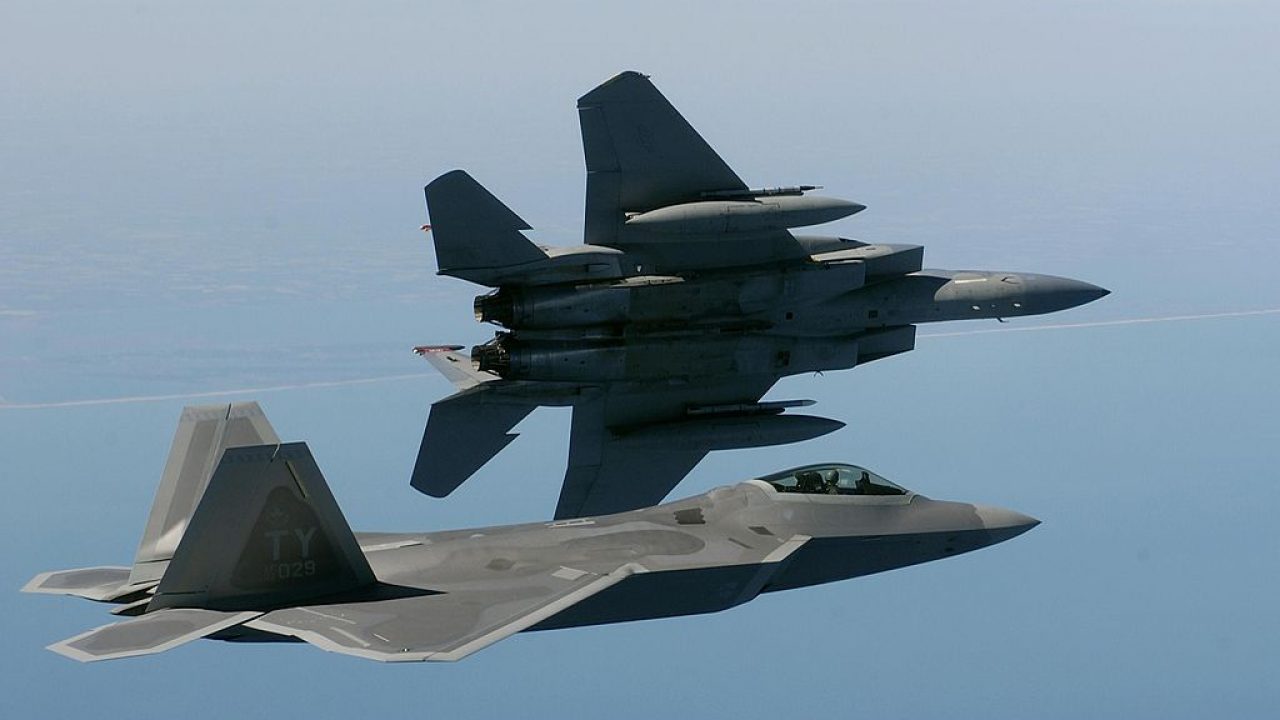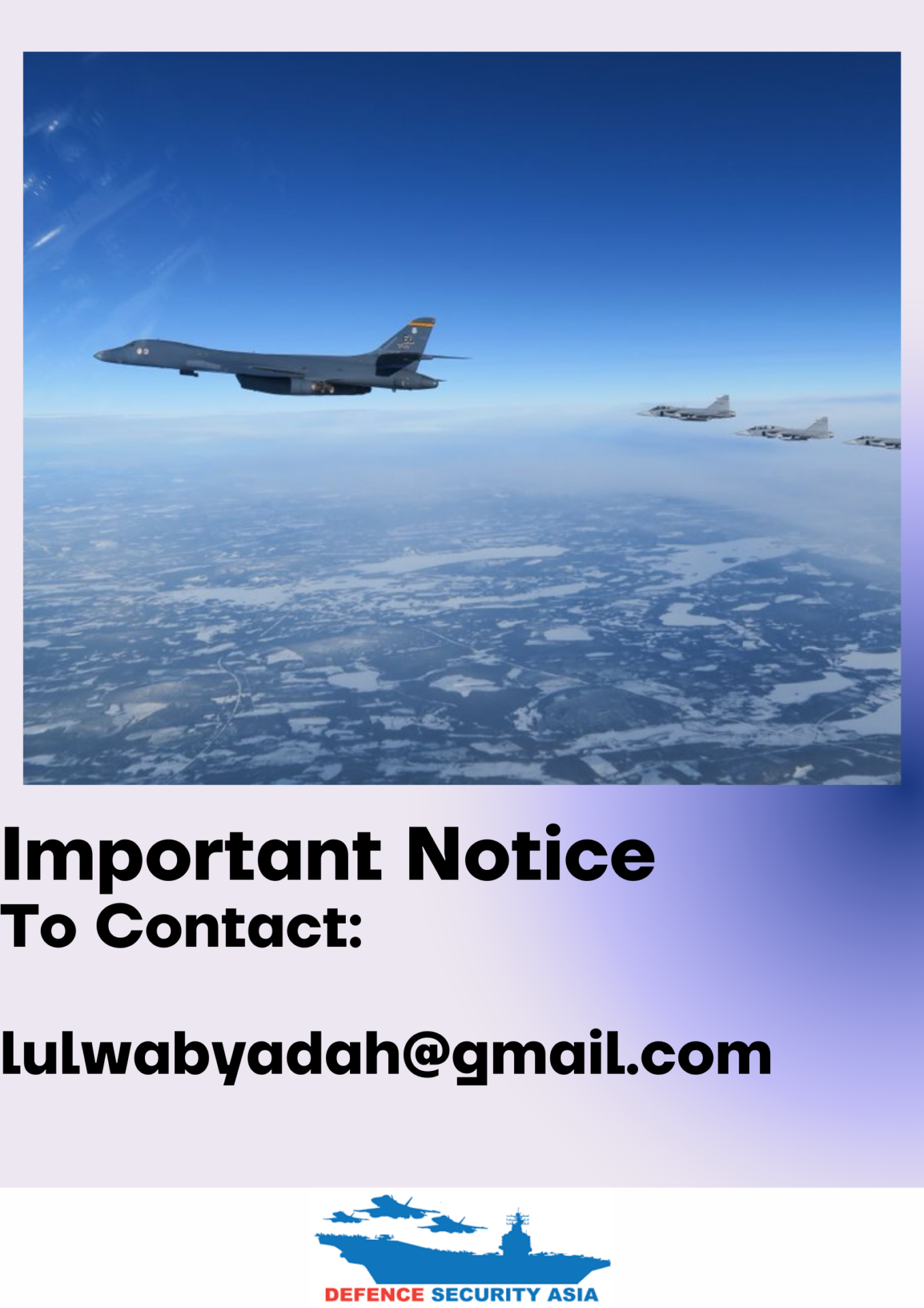U.S. 5th-Gen Stealth Fighter F-22 “Raptors” Arrive in Singapore for Joint Training in South China Sea
Several fifth-generation F-22 "Raptor" fighter jets, operating under the U.S. Pacific Air Forces (PACAF), are currently in Singapore for joint training exercises with the Republic of Singapore Air Force (RSAF).
(DEFENCE SECURITY ASIA) – Several 5th generation F-22 “Raptor” fighter jets, operating under the U.S. Pacific Air Forces (PACAF), are currently in Singapore for joint training exercises with the Republic of Singapore Air Force (RSAF).
The F-22 Raptors will spend several days in the city-state bordering peninsula Malaysia conducting Dissimilar Air Combat Training (DACT) with RSAF fighter jets.
“F-22 fighters from the U.S. Pacific Air Forces (PACAF) will be in Singapore for a few days to conduct Dissimilar Air Combat Training (DACT) alongside RSAF’s F-15SG and F-16 fighters,” according to a statement on RSAF’s social media.
Additionally, the PACAF F-22s will engage in aerial refueling exercises with Singapore’s A330 Multi-Role Tanker Transport (MRTT) aircraft.
The joint exercises between the PACAF F-22s and Singapore’s fighters will take place over the southern reached of the South China Sea with the international air space, allowing both sides to execute various tactical maneuvers together.

The social media statement did not specify the base of origin for the F-22s, leaving it unclear whether they are operating from Guam, Japan, or Australia.
Why Australia?
Recent media reports indicate that the United States has been quietly developing military infrastructure in northern Australia, not only to station its troops but also to accommodate B-52 bombers and F-22 “Raptor” fighters.
These efforts, carried out with the approval of the Australian government, are aimed at addressing issues in the South China Sea and countering Beijing’s aggressive claims over nearly the entire region.
The northern Australian areas being developed by the United States as its new military bases for bombers and fifth-generation fighters are Darwin and Tindal.
The U.S. bases at Darwin and Tindal will also house tanker aircraft and various other support aircraft.

The U.S. Air Force (USAF) has plans to retire approximately 32 of its air-dominance F-22 “Raptor” fighters starting from 2030, but this move has been blocked by members of Congress.
U.S. Congress members are unwilling to allow the USAF to retire the fifth-generation F-22 fighters due to concerns that delays in the development of the sixth-generation air dominance program (Next Generation Air Dominance – NGAD) could arise.
Congress wants all 32 F-22 Block 20 fighters to remain operational beyond 2030, or until the NGAD aircraft are ready to take over the role previously played by the F-22.
They demand that the 32 F-22 Block 20 fighters, which lack the latest systems and are primarily used for training, continue to serve
Moreover, Congress is advocating for substantial funding to upgrade the F-22 Block 20 with modern equipment and systems comparable to those in the F-22 Block 30/35 and other USAF fighters such as the F-35 and F-15EX.

Currently, the USAF has a total of 185 F-22 fighters, 32 of which are Block 20 variants lacking the latest equipment and are predominantly used for training.
Due to the absence of modern systems and components like the Infrared Search and Track (IRST) in the F-22 Block 20 variant, these aircraft are not deployed in frontline missions and are used solely for training purposes.
With the retirement of the 32 F-22 Block 20 fighters, the USAF will retain only 153 F-22s for its operations. — DSA



Comments are closed.